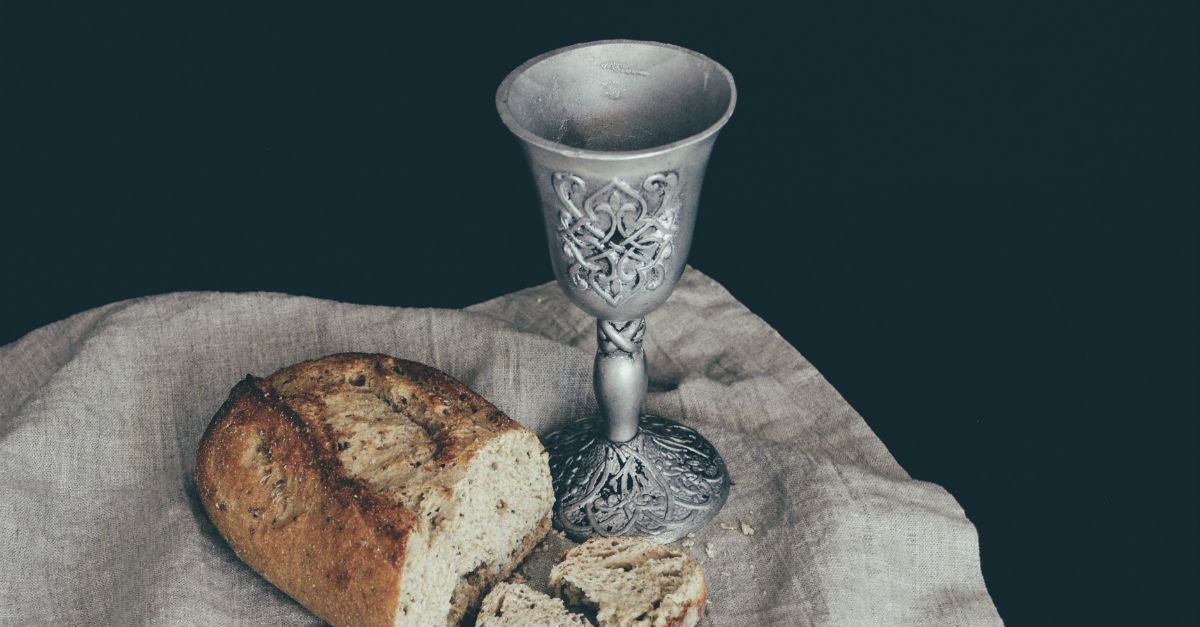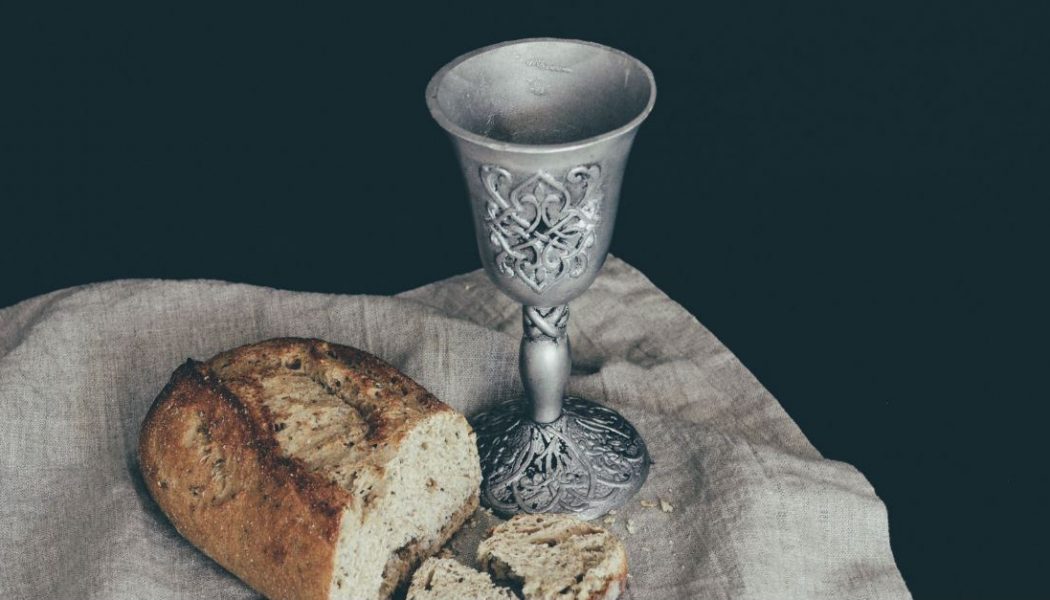
In a recent worship service in our church, I invited all “baptized believers” to join us at the Lord’s Table. That prompted a question from several people: why say, “baptized believers?” Is baptism really a prerequisite for taking communion?
Of course, not all churches would answer this in the same way. But the majority of Christians throughout history have believed that only baptized people should participate in Eucharistic meal. I think it’s a biblical position, and here’s why.
The Meaning of Baptism and the Lord’s Table (Communion)
There are two sacraments given to the church, baptism and the Lord’s Table, but these serve different functions.[1]
Meaning of Baptism
Baptism is a one time event that signifies:
- identification with Christ,
- initiation into the Christian faith, and
- entrance into the Christian church.
Lots of passages point this way, and I won’t list them all, but think for example about the Great Commission (we are commanded to make disciples, baptizing them in the name of Father, Son, and Spirit – Matthew 28:19), or multiple references in Acts, where people are baptized in the name of Jesus (Acts 2:39, 8:16; 10:48), or the Epistles, where Paul speaks of being baptized into Christ and into the body (Gal. 3:27; Rom. 6:5). Consider especially 1 Cor. 12:13 where Paul says that by one Spirit we were all baptized into one body. In other words, baptism is what identifies someone with Christ and unites someone to the church. We also see this in Acts 2, where people repent, believe, and are baptized and thus are “added” to the church (Acts 2:38-41).
Meaning of Communion
The Lord’s Table, on the other hand, is an ongoing, repeatable event (“as often as you eat this bread and drink this cup do this in remembrance of me”) that signifies:
- fellowship with Christ,
- continuance in the Christian faith,
- and unity with the Christian church.
This is especially clear in 1 Cor. 10:16-17, where Paul says, “The cup of blessing that we bless, is it not a participation in the blood of Christ? The bread that we break, is it not a participation in the body of Christ? Because there is one bread, we who are many are one body, for we all partake of the one bread.” This shows us that communion involves both a special fellowship (“participation”) with Jesus and symbolizes our unity with the “one body” of Christ (“we who are many are one body”).
Baptism Precedes Communion
Baptism is an initial profession of faith, and the Lord’s Table (Communion) is an ongoing, continual, and repeated renewal of faith. Isn’t it dishonest for someone to participate in a renewal of faith, if they’ve never professed faith in baptism to start with?
Communion is also something of a pledge of renewed trust in Christ and obedience to him (which is one reason why Paul warns against eating or drinking unworthily in 1 Corinthians 1:27). But it would be pretense for someone to take communion when they have not even taken the first step of obedience to Jesus in baptism.
Then there’s also the biblical pattern. The sequence is always baptism first, followed by communion. So in Acts 2, for example, it is only those who are baptized and added to the church in verse 41 who then participate in the breaking of bread in verse 42. In 1 Corinthians, when Paul talks at length about communion (in chapter 11), the assumption from earlier in the letter (chapter 1) is that he is writing to baptized Christians. There are no examples in Acts or the Epistles of unbaptized people taking communion.
Add to this the witness of the church through the ages. While historical creeds and confessions don’t settle the matter (Scripture does that!), they do give us some clear benchmarks for understanding how the church has historically understood doctrine. And from what I can tell, the majority of churches have either taught or assumed that baptism should precede communion. Of course, there are significant disagreements about the mode and timing of baptism – but almost all agree that baptism, however it is understood, must come first.
So, that’s why I invited “baptized believers” to share in the Table at our church. Stating it this way is helpful for a couple reasons.
1. It’s helpful to parents.
First of all, it’s a helpful reminder for parents that their kids should be baptized before taking communion.
2. It’s helpful for non-Christians.
It’s also helpful for seekers and non-Christians who need a concrete way of discerning whether they are really converted Christians or not. Of course, being baptized itself doesn’t make someone a Christian or necessarily prove they are. But making a public profession under the authority of a local church who affirms the reality of someone’s conversion is an important step and a good safeguard against self-deception.
The Significance of Baptism and Communion: Making the Gospel Visible
Finally, let’s never forget that both baptism and the Lord’s Table are given by the Lord to make the gospel visible to the church and the world.
Baptism points to the death, burial, and resurrection of Jesus. It’s a dramatic reenactment of the humiliation and exaltation of our Lord that signifies our union with him through faith. “Do you not know that all of us who have been baptized into Christ Jesus were baptized into his death? We were buried therefore with him by baptism into death, in order that, just as Christ was raised from the dead by the glory of the Father, we too might walk in newness of life” (Romans 6:3). Baptism publicly declares that what is true of Christ is also true of all who trust in him. His story is our story, in his death we also died, and through his resurrection we receive life made new.
The Lord’s Table, likewise, “proclaims the Lord’s death until he comes” (1 Cor. 11:26). When we eat the broken bread and drink the fruit of the vine, we taste and see that the crucified and risen Savior is gracious and good. We embody our faith through the everyday acts of eating and drinking, showing that just as we’re dependent on bread for physical nourishment and strength, so also we trust in Christ and his finished work alone for salvation, spiritual life, and strength.









